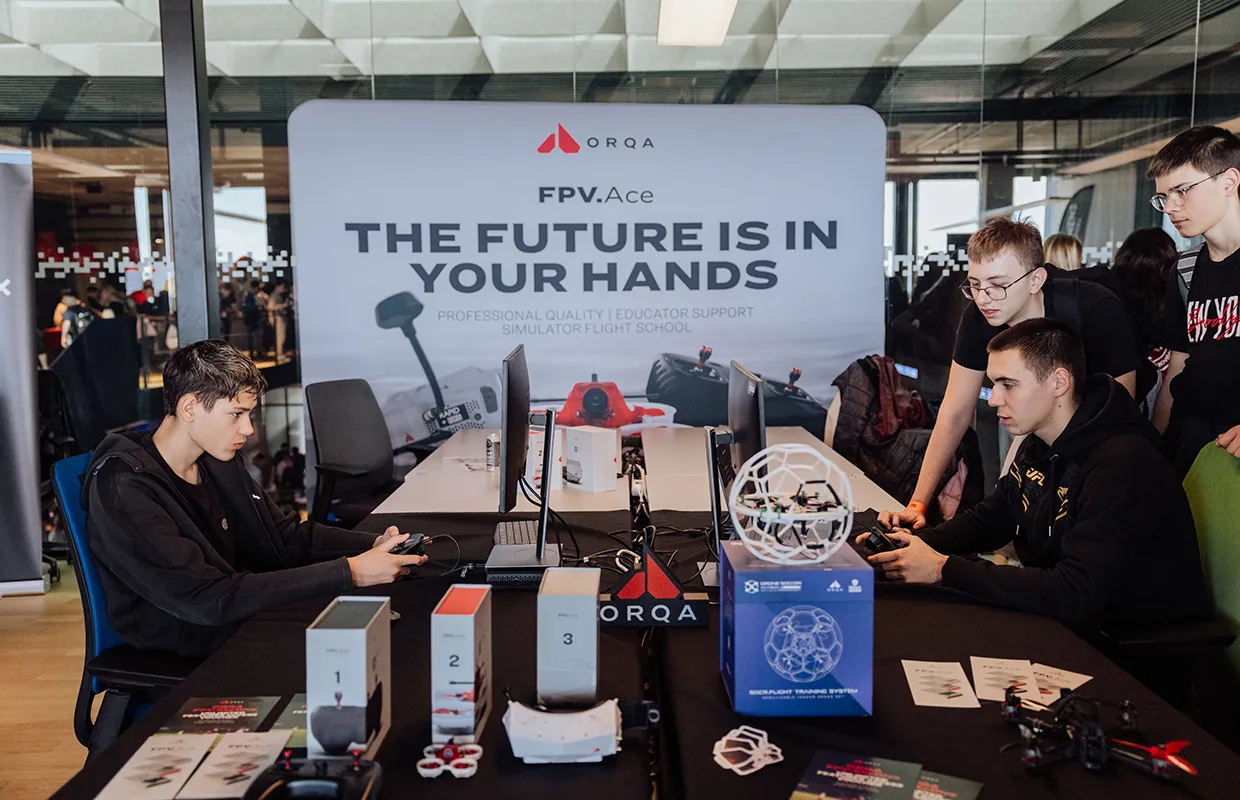Founded in 2018 in Osijek, Croatia as a hobby electronics company, Orqa emerges today as an innovation-orientated manufacturer of advanced remote reality unmanned products, providing robotics solutions for the European defence market. Srđan Kovačević, CEO, tells us more.
A ROBOTIC REVOLUTION
In recent years, there has been a dramatic shift in how the defence industry perceives unmanned and robotic technologies, creating a considerable gap in the market for innovative solutions.
Orqa, a company that began as a hobby electronics company, is on hand to fill this gap with its first-person view (FPV) and advanced remote reality (RR) products.
Accessibility and the cost of technology used in defence, meanwhile, have lowered the bar for entry, allowing for increased innovation as small to medium-sized enterprises (SMEs) and start-ups begin to populate the market.
In addition, given the disruptive nature, pace of innovation, and urgency of adoption that currently surrounds unmanned technologies, the industry is witnessing important regulatory aspects – such as standards and compliance – taking a back seat.
“For a great deal of newcomers, it will be challenging to navigate these regulations, which will inevitably come knocking once the urgency subsides,” opens Srđan Kovačević, CEO of Orqa.
Leveraging the highly disruptive transformation of how land warfare is waged – which has seen demand increase for unmanned technologies – Orqa’s solutions are becoming first choice for many companies targeting the defence markets.
“We never started as a defence company, but it seems like it happened almost overnight and users in the defence space started needing our technology,” Kovačević adds.
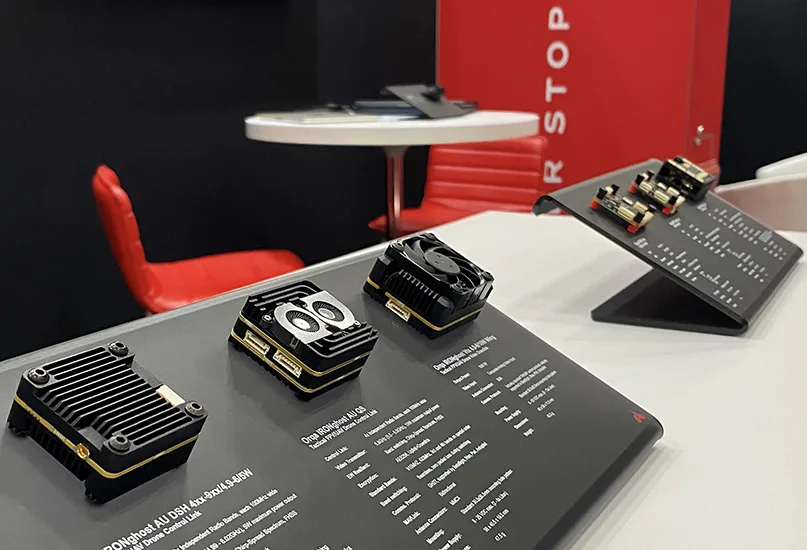
STEPPING UP TO THE PLATE
Following the transformation of Ukraine and Russia’s defence capabilities over the past three years, Europe and the US began to considerably lag in comparison – both in terms of technology advancements and manufacturing capacity.
As one of only a handful of Western players active in the unmanned defence technology space, Orqa stepped up the plate when it identified an opportunity to enable the growth of the broader Western ecosystem of unmanned defence solutions.
“The effects of unmanned technology can profoundly transform how you fight; sending a machine into harm’s way is not only more preferable than sending a human, but it also turns out that, in many cases, it’s a much more effective way of doing the job,” Kovačević reveals.
By utilising Orqa’s solutions, Western defence forces can start the much-needed transformation right now, stepping up to the security challenges of the future.
In addition, recent uses of unmanned technologies have revealed their dual-use nature – utilised not only as a defence solution but as a social tool.
“The journey ahead is going to be about leveraging the advancements of unmanned technologies and taking them back to their civilian roots, improving how we use unmanned systems in public safety, enterprise, and ultimately consumer spaces,” he reflects.
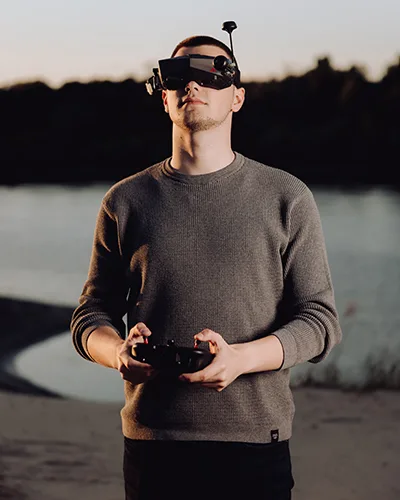
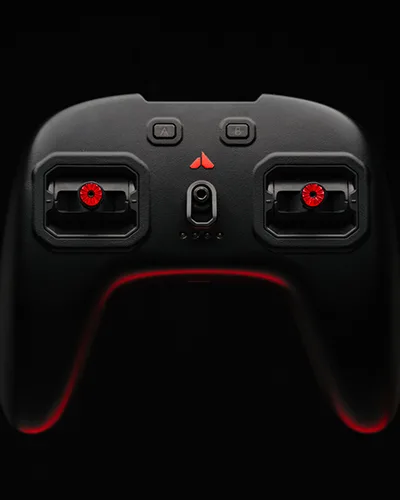
PRODUCTS, PARTHERSHIPS, AND PROGRESS
Orqa’s flagship technology, RR, allows users to have an immersive experience of a remote, real-world environment in real time using low-latency video transmission.
“Latency is critical for any sort of interaction with the remote environment – the lower the latency, the more dynamic the interaction. In the context of defence, lower latency translates to faster reaction times and higher precision,” Kovačević explains.
The company’s vertically integrated production and manufacturing model, meanwhile, is critical to its ability to iterate faster and produce high-quality products time and again.
Bringing key capabilities in-house has allowed Orqa to choose how fast it progresses and in which direction.
“Whenever you rely on third parties, you are limited by their current capabilities and willingness to improve them,” he details.
Elsewhere, Orqa has cultivated strong relationships with key industry partners having recently acquired ImmersionRC, which has allowed the company to enhance its technical capabilities and market presence.
“I strongly believe that building the world champion in aerial robotics will require both organic and inorganic growth,” Kovačević outlines.
When it comes to acquisitions, Orqa’s philosophy is not just about obtaining access to new technologies or markets – it’s also about accumulating new expertise, different perspectives, and a renewed passion to build great technology.
As such, Orqa seeks to acquire companies whose next level of potential can be unlocked, enabling them to achieve more, improve, and become part of a larger and more ambitious mission.
“When it comes to partnerships, it’s all about synergies and cross-pollination. A great partnership must be a win-win,” he impassions.
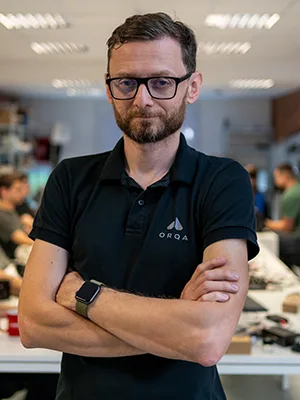
“We’re looking forward to enabling the next generation of US unmanned solutions with our technology”
Srđan Kovačević, CEO, Orqa
THE FUTURE OF ROBOTICS
Having recently participated in the XPONENTIAL Show in Houston, US, where it showcased recent developments such as the H7 Flight Controller, the company received a very positive response.
“Our partners were excited about our new products and technologies, particularly the new components we unveiled for the first time at the event,” Kovačević shares.
As Orqa has recently been focusing on innovating its current offerings on the drone market, it is pleased to have received favourable public feedback at the event.
“We’re looking forward to enabling the next generation of US unmanned solutions with our technology,” he prides.
Looking ahead, the company continues to operate upon the belief that robotics are the future of humanity.
“We have known this is the case for decades, but I believe that today we’re at the cusp of making it happen on a more meaningful scale,” Kovačević tells us.
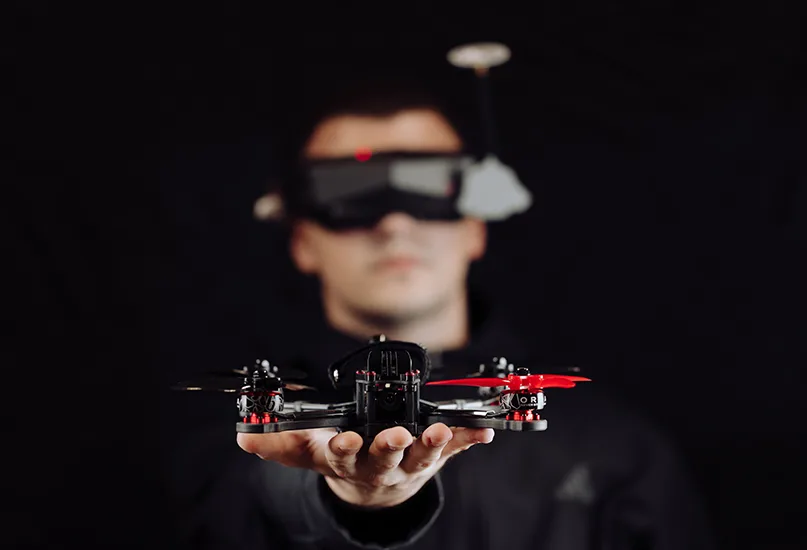
He firmly believes the first large-scale adoption of robotics will happen in aerial robotics, simply due to the demand fuelled by the defence sector, which is anticipated to push the technology to a level that will enable deployment at scale.
“This will be the trigger and enabler, both technologically and otherwise, of the large-scale adoption of large-scale aerial robotic fleets,” he adds.
Orqa’s objective in this context is to enable this process with its robotics solutions, building aerial robotics market dominance in doing so.
“From that point on, our long-term objective is to transpose our technology stack from the air to other domains and enable robotic applications more broadly.
“Our end game is dominating global robotics,” Kovačević confidently concludes.



